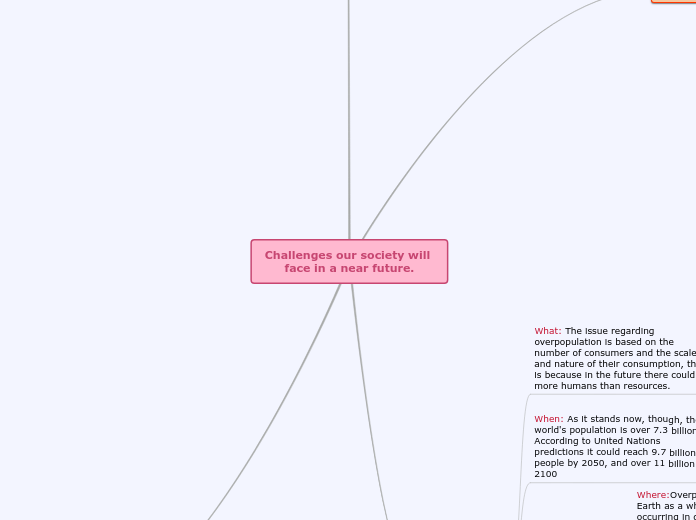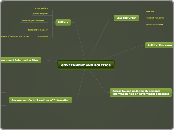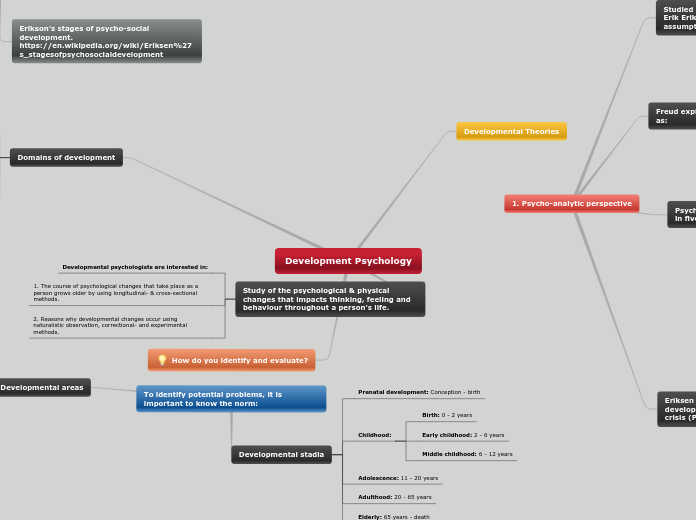Challenges our society will face in a near future.
Why: The reason of these issue and the challenge our society will face in the near future is because the Artificial intelligence will be able to do things faster than any human or even perform tasks that humans are not able to do. Cause they are faster and more intelligent than any human.
Who: The responsible of this development are humans and we are also the ones who can get affected by the issues and risks of the AI. It can affect our lives, our brain and way of thinking also the way we make decisions and do things. Basically it will affect many aspects of our daily lives.
Explanation of the Technological advances in the future.
Where: As we continue to develop diverse technological advances we have forgotten that those advances can cause many issues in the near future, but also many people are afraid of the power that the AI could bring in the future for example:
The main and most immediate issue is the potential of AI to leave large numbers of humans out of work.
Carl Frey and Michael Osborne, of the Oxford Future Technology Effects Program, treats the issue seriously. They analyzed more than 700 different jobs, of which almost half could be done by a computer in the future.
Many research shows that constant interactions with technology are changing our brain
They influence the information we remember, in our sense of direction and even in the things that make us happy.
When: Accroding to Darshan Goswam ( a project manager or Renewable Energy) he states that AI could increase in a global context by $15.7 trillion, a full 14 percent, by 2030.” Also in 2017 study from Redwood Software and Sapio Research concluded that 60 percent of businesses can be automated in the next five years. Having an impact in our society.
What:Artificial intelligence is an area of computer science that emphasizes the creation of intelligent machines that work and react like humans. Due to the fact that can work and react as humans there are many disadvantages and problems that can occur and happen in the future for example:
Artificial intelligence will influence the human mind.
The impact on the workplace
Environmental Concerns
Who: The society and human race are responsible for all the damages that are occurring and that are going to happen, especially since the industrial revolution by which many living organisms for example the plants and animals will suffer the consequences but also is very ironic how the humans will also be affected.
Where: The environmental issues are a matter of a worldwide context that have being develop thought out many years especially since the indtrial revolution. Even do there are no exact dates of the possible events occurring as consequence there some predictions for example:
Scientists have high confidence that global temperatures will continue to rise for decades to come, largely due to greenhouse gases produced by human activities.
Arctic Likely to Become Ice-Free
Frost-free Season (and Growing Season) will Lengthen
Sea Level Will Rise 1-4 feet by 2100
Change Will Continue Through This Century and Beyond
When:Global climate change has already had observable effects on the environment. Glaciers have shrunk, ice on rivers and lakes is breaking up earlier, plant and animal ranges have shifted and trees are flowering sooner.
Effects that scientists had predicted in the past would result from global climate change are now occurring: loss of sea ice, accelerated sea level rise and longer, more intense heat waves. This will also continue to worsen in the future years
If we don't help the environment in the future there could be a lot of extinct animals, also lost cities due that the water will rise, a lot of health problems and diseases because of the pollution and so on.
What: Environmental concerns are not new or recent, in fact these problems continue to rise over the years becoming one of the most important issues the world is facing and will continue to face in a long term basis.
Some of the environmental issues are: global warming, acid rain, air pollution waste disposal, ozone layer depletion, water pollution, climate change.
This issues affectevery human, animal and nation on this planet.
Why: The reason of this issue is due to our bad administration of the natural resources and the excess of exploration.
As our actions have been not in favor of protecting this planet, we have seen natural disasters striking us more often in the form of flash floods and tsunamis.
Over the last few decades, the exploitation of our planet and degradation of our environment have gone up at an alarming rate.
Why: Overpopulation is happening as a result of our excess in consumption as we have stated previously, this factors are affecting and might continue to affect the whole world in different cases
Why should we be concern with overpopulation?
Rising living costs
Rising unemployment
Environmental degradation: which also links to the environmental concerns as it contributes to the excess of exploration, and Co2.
Who: The main cause of overpopulation is due to humans and the excess of consumption, this is because despite the amount of humans increasing every year each of them consumes more than it should and in excess.
Overpopulation is caused by number of factors
Depletion of precious resources are few of the causes.
Better medical facilities
Reduced mortality rate
Where:Overpopulation involves the Earth as a whole, but it particularly is occurring in developing countries such as China and India.
These two countries are rapidly reproducing at a rate the Earth cannot keep up with.
These countries are the two most heavily populated countries in the world, with China having one sixth of the world’s population, and India following close behind
When: As it stands now, though, the world's population is over 7.3 billion. According to United Nations predictions it could reach 9.7 billion people by 2050, and over 11 billion by 2100
What: The issue regarding overpopulation is based on the number of consumers and the scale and nature of their consumption, this is because in the future there could be more humans than resources.
Possible outcomes
Lack of natural resource for the entire population
More than half of the world's population may not have adequate access to water.
The number of people living in cities will likely triple.
Bibliography
Overpopulation
http://www.bbc.com/earth/story/20160311-how-many-people-can-our-planet-really-support
https://www.activesustainability.com/sustainable-development/causes-consequences-overpopulation/
Artificial intelligence
https://www.bbvaopenmind.com/asi-influira-la-inteligencia-artificial-en-la-mente-humana/)
https://www.triplepundit.com/story/2018/how-will-artificial-intelligence-impact-future-its-us/55541
http://cnnespanol.cnn.com/2014/12/29/opinion-por-que-la-inteligencia-artificial-amenaza-a-la-humanidad/
Enviormental concerns
https://climate.nasa.gov/effects/
https://www.conserve-energy-future.com/top-25-environmental-concerns.php









